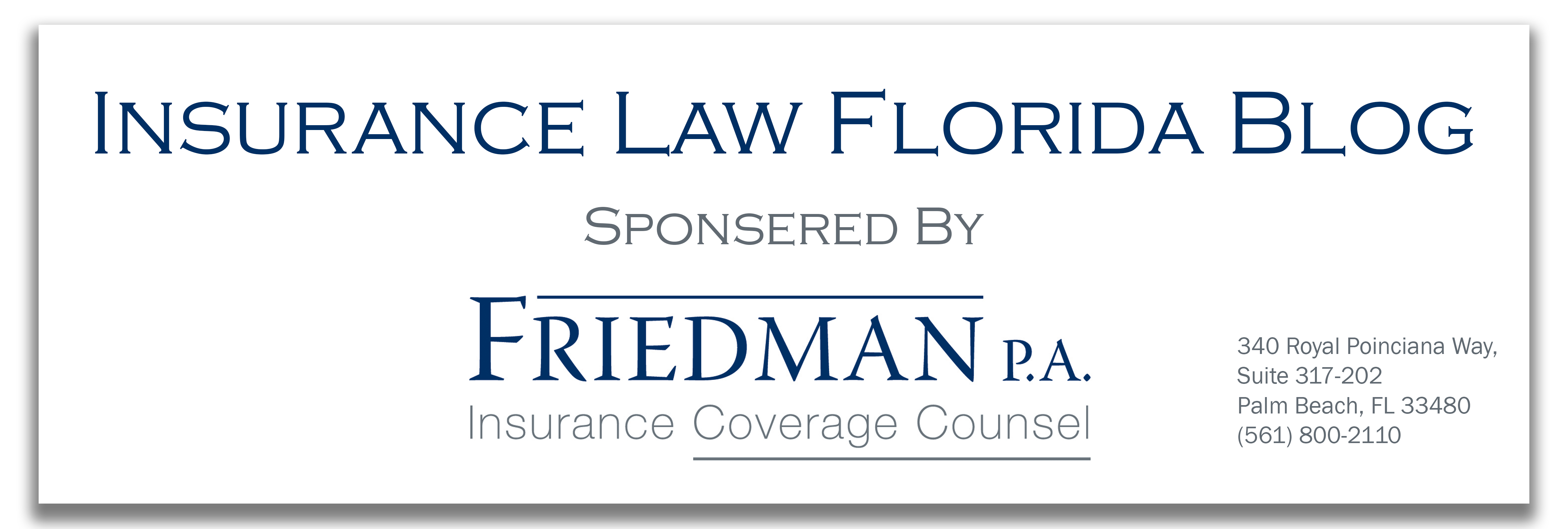Last March I wrote about the 11th Circuit’s decision in Ruderman v. Washington National Insurance Corp., No. 10-14714 (11th Cir. Feb. 17, 2012) (appeal of docket No. 1:08-cv-234011-JIC), in which the court certified to the Florida Supreme Court the question of whether an ambiguous insurance policy provision is automatically construed against an insurer or whether the insurer can admit extrinsic evidence to resolve the ambiguity. It was my hope that the Florida Supreme Court would reaffirm the basic insurance law principle that “If a policy provision is ambiguous, the policyholder wins. Period. End of inquiry.”
Last week, among a string of pro-policyholder decisions, the Florida Supreme Court did the right thing and reaffirmed the basic rule of contra proferentem (ambiguities are read against the drafter) in the insurance context. In Washington National Ins. Co. v. Ruderman, Case No. SC12-323 (July 3, 2013), Florida’s highest court answered the 11th Circuit as clearly as possible: “because the policy is ambiguous it must be construed against the insurer and in favor of coverage without resort to consideration of extrinsic evidence.”
The majority decision attempted to explain diplomatically that this has always been the law as set forth by the Florida Supreme Court, but that certain circuit and federal courts had diverted from this bedrock principle, in particular in cases involving latent as opposed to patent ambiguities. The Supreme Court also explained that courts applying contra proferentem as an insurance policy construction rule of “last resort” (i.e., after the consideration of extrinsic evidence) had improperly applied the standards applicable to normal breach-of-contract claims, and not the more strict rules of construction that apply to insurance coverage disputes. Footnote 3 to the Ruderman decision is an admirable attempt to graciously explain that lower courts in Florida have improperly strayed from Supreme Court precedent on this issue.
I am not a politician or a judge, but a fan of the straight-talking Dr. Seuss, so I can translate footnote 3 this way: “We meant what we said and said what we meant.”
Justice Polston, in a spirited dissent, cited to Florida district and appellate decisions in an attempt to argue that lower Florida courts have applied contra proferentem only as a rule of last resort. The dissent also cited to law review articles supporting this view, including one article written by an insurance company lawyer (surprise!) that put Florida in a group of states that allow extrinsic evidence to explain ambiguities in an insurance policy. In doing so, the dissent only makes the majority’s point stronger: many lower courts in Florida and the commentators that follow them have misconstrued the law set down by the Florida Supreme Court, whether honestly or in furtherance of the insurance industry’s agenda.
Neither Couch on Insurance, nor a smattering of lower courts, nor insurance industry mouthpiece Laura Foggin (who, as is typical, reduced the industry’s judicial lobby to an amicus brief) state the law of the land in Florida. The Florida Supreme Court does, and it is about time that the insurance industry accept that the Court meant what it said on the rules of insurance policy interpretation in Florida. Hopefully Florida’s lower courts will finally get the message.
